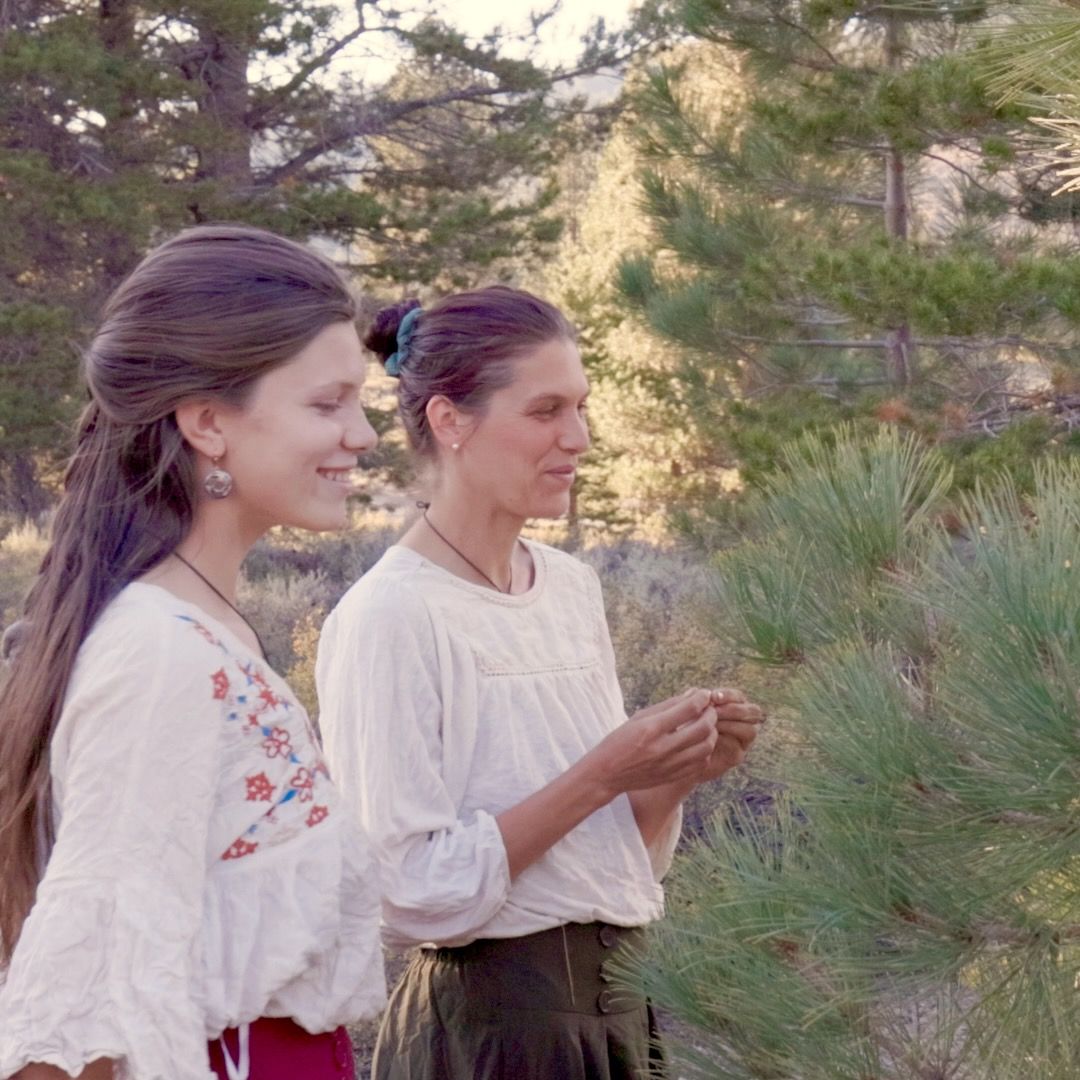The Performer's Guide to Post-Workout Recovery
A performing family's professional approach to post-workout recovery from an herbalist perspective.

Workout recovery isn't about supplements or complicated routines. It's about understanding how your body naturally restores itself and supporting those processes with proven methods.
My experience of natural wellness and expertise in herbalism has been put to the test in the last 15 years through the demanding life of a performing family. Moving heavy equipment, setting up stages in different weather conditions, performing for hours under stage lights, and maintaining energy through long touring days requires physical strength and restoration. We've successfully turned to traditional botanicals to enhance the body's natural recovery processes.
Recovery as Natural Rhythm
From an herbalist perspective, recovery follows the same principles found throughout nature: cycles of activity and restoration that allow for regeneration and growth. In traditional herbalism, the body is understood to move through natural phases: activity, transition, restoration, and renewal. Just as plants have seasons of growth, harvest, dormancy, and regeneration, our bodies require intentional cycles between exertion and rest to maintain vitality.
The body possesses a built-in ability to heal and restore. Botanical support works synergistically with these recovery mechanisms.
Key recovery principles:
- Cool-down transition: Gentle movement signals the nervous system to begin restoration
- Internal replenishment: Proper hydration and mineral replacement support cellular repair
- External care: Botanical applications enhance circulation and soothe overworked tissues
- Consistent practice: Regular recovery routines become as important as the activity itself
Traditional Recovery Wisdom
Cultures worldwide have long understood that physical exertion requires intentional restoration. Traditional medicine systems recognize that recovery involves both internal and external care. The concept of "warming down" appears across many traditional practices, where gradual transitions from activity to rest prevent stagnation and support natural healing processes.
Modern Herbalism and Recovery Support
Traditional Western herbalists approach recovery by supporting the body's natural healing mechanisms rather than masking discomfort. As herbalists, we understand that botanical compounds can enhance circulation, reduce inflammation, and promote cellular repair when applied appropriately.
How Botanical Recovery Works:
- Enhanced circulation: Certain botanicals promote blood flow to tired muscles
- Natural mineral replenishment: Plant-derived minerals support electrolyte balance
- Anti-inflammatory support: Traditional herbs contain compounds that help manage exercise-induced inflammation
- Skin restoration: Botanical oils and extracts nourish skin stressed by heat and friction
🌿 Our Formulations:
Our Workout Bundle combines four botanical essentials for recovery support:
Voices of Spring Botanical Soak: Lavender and juniper for restorative mineral bathing
Saint Patrick Scrub: Invigorating botanicals for circulation and exfoliation
Nocturne Op. 9 No. 2 Sea Salt Mist: Wild-harvested minerals for muscle and scalp refreshment
Falling Deodorant Mist: Witch hazel and sage for natural freshness
Internal Botanical Recovery Support
Beyond external care, recovery can also be holistically supported from within. Traditional botanical infusions and adaptogenic herbs provide the body with compounds that support natural healing processes and stress resilience.
Recovery-Supporting Botanicals:
Adaptogenic Herbs help the body manage physical stress and return to balance. Ashwagandha reduces cortisol levels and supports muscle recovery¹, while rhodiola enhances stamina and resilience during stressful training periods. Eleuthero, extensively studied by Russian scientists since the 1950s as a performance enhancer for athletes and military personnel, supports endurance and helps the body adapt to physical stress².
Anti-Inflammatory Teas like ginger and turmeric contain natural compounds that help manage exercise-induced inflammation. Ginger tea with lemon and honey provides digestive support alongside muscle relief³.
Mineral-Rich Infusions from green tea offer antioxidant protection against exercise-induced oxidative stress⁴, while hibiscus tea naturally replenishes electrolytes and vitamin C.
Recovery Smoothie Additions: Traditional herbs can be incorporated into post-workout nutrition through powdered forms of adaptogens, mineral-rich seaweeds for natural electrolytes, and nutrient-dense botanicals that support cellular repair.
Simple Recovery Infusion Blend:
- 1 small piece of ginger root
- 1 tsp green tea leaves
- ½ tsp turmeric powder
- Pinch of unrefined salt
- Honey and lemon to taste (optional)
Steep covered for 15 minutes in hot water and drink warm within 30 minutes of finishing your workout.
Frequently Asked Questions
"How soon after exercise should I start recovery care?"
Begin immediately with gentle movement and the recovery infusion, then progress to external botanical care once you've addressed internal needs. The sooner you start, the more effective your recovery.
"Can botanical products really help with muscle soreness?"
While they won't replace proper hydration and rest, ingredients like mineral salts, anti-inflammatory botanicals, and adaptogenic herbs provide genuine comfort and support natural healing processes.
"Is this routine necessary for lighter workouts?"
Even gentle movement deserves mindful recovery. Adjust the intensity of your care to match your exertion level, but the principles of internal nourishment and external botanical support remain valuable.
From Herbalist to You
Like all botanical treatments, recovery care works best with consistency and mindful application. The same attention you give to your workout deserves to be given to your restoration.
We're excited for you to discover healthy ways to support your body's natural recovery processes without having to rely on synthetic alternatives. May your herbal recovery journey bring you strength, vitality, and the joy of working with nature's God-given gifts.
References:
¹ "Ashwagandha (Withania somnifera) is a traditional Ayurvedan herbal supplement that is classified as an adaptogen" - PMC (PubMed Central), National Institutes of Health. https://pmc.ncbi.nlm.nih.gov/articles/PMC9736198/
² "Eleutherococcus senticosus was first established as a medicinal plant officially in the USSR in 1962, with over 1000 studies published during Soviet research directive" - ScienceDirect. https://www.sciencedirect.com/science/article/abs/pii/S0378874121005018
³ "Ginger (Zingiber officinale) was used traditionally in Indian (Ayurvedic) and Chinese medicine due to its anti-nausea and anti-inflammatory properties" - PMC (PubMed Central), National Institutes of Health. https://pmc.ncbi.nlm.nih.gov/articles/PMC9736198/
⁴ "Green Tea (Camellia sinensis) has been shown to encourage the healthy metabolism of sugars and offers the body antioxidant support" - Gaia Herbs, Seeds of Knowledge. https://www.gaiaherbs.com/blogs/seeds-of-knowledge/6-herbs-for-athletes-before-during-and-after-a-workout



